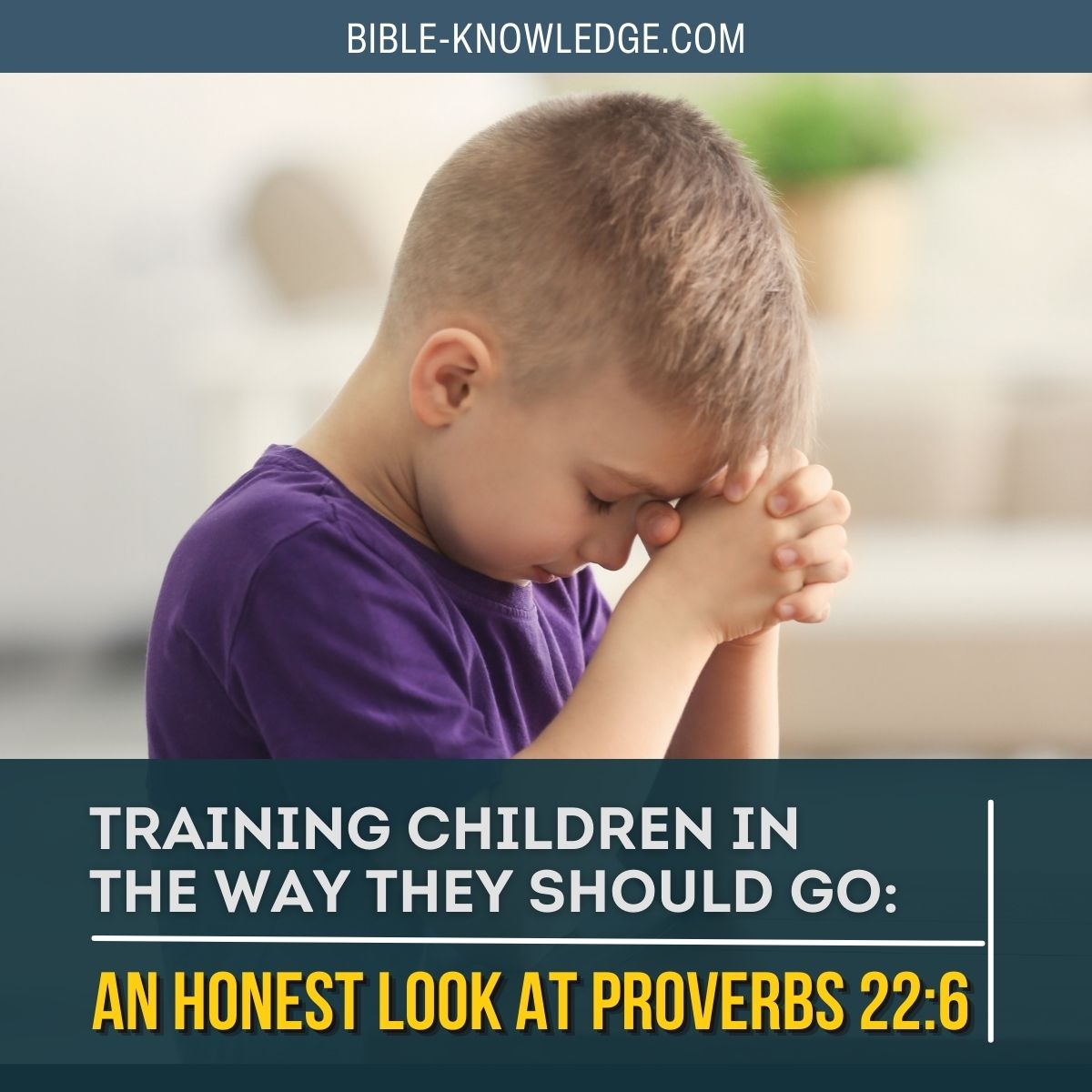During the 1960s, The American Peace Corps described their work as “The toughest job you’ll ever love.” It was a very successful slogan and a successful ad campaign, which attracted almost 30,000 new applicants to the international relief program.
As a mother of four children, though, I almost beg to differ with this slogan. No doubt traveling across the world to help teach, clean, build and farm in impoverished societies is indeed a tough job, but I’m pretty certain that being a parent is actually the “toughest job you’ll ever love.”

There is nothing else in life that I have ever attempted that has filled me with so much contentment and frustration, love and loathing, peace and chaos as being a parent. Why does parenting bring up and out so many big emotions? And why does it feel so hard sometimes? And most importantly, if this job is so important why did God spend so little time addressing parenting issues in the Bible?
Let’s face it, verses on parenting in the Bible are scarce, and when you do collect a handful you immediately notice that they seem a little vague. The majority of the parenting verses in the Bible deal with discipline. If you are like me, though, you might be wondering about all of the billions of other issues that come up with a kid in the span of a day.
What about after I pray about a decision and then still second-guess myself for months? When do I back off and let them make their own decisions without hovering? What is the balance between pushing too hard and not pushing hard enough to help them achieve their potential?
These are the kinds of questions, along with millions more, that run through my mind on a daily basis about my kids. My default is always to go to the word of God when I have a problem. But, I must admit that there have been a few times when I went to the word of God looking for direction in my parenting and I just felt unsure.
Discipline them, I get that but sometimes I don’t know if they need discipline or not. Should I discipline my kid for having a different opinion than me? Because sometimes their different opinion sure does anger me.
What I really would like is just a handbook, God. Just go ahead and neatly outline how to handle some of these mind-boggling issues that my kids throw at me in the course of a day. I do not receive this handbook, though. What I get is Proverbs 22:6 “Train up a child in the way he should go: and when he is old, he will not depart from it.”
Over the years, Christians have claimed this verse as their parenting anthem. Whole books are written about this verse alone. I will admit that in my early days of parenting, this was not my favorite verse in the Bible. Why? Because it left me still questioning. Well, what way should he go? When he is old? What about right now? I need her to behave right now. But we have a promise concerning God’s word.
Isaiah 55:11 says:
“So shall my word be that goeth forth out of my mouth: it shall not return unto me void, but it shall accomplish that which I please, and it shall prosper in the thing whereto I sent it.”
Isaiah 55:11
When other verses in the Bible do not make sense to me, I claim this verse because this verse does make sense. God’s word will perform exactly what God intends for it to. If there is some discrepancy, it is in me, not in the word of God. This verse helps remind me that I need to stop. I need to quit expecting quick, band-aid answers to my questions and problems. I need to pause. I need to dig, and I need to see what the word of God has for me beneath the surface.
What Parents Want vs. What God Wants
One of the biggest problems in parenting as a Christian is that what we want does not always align with what God wants. It is very important that we keep this important aspect of our Christian life lined up properly.
What I often want from my kids is for them to simply behave, don’t embarrass me. Is this what God wants, though? The majority of the verses in the Bible on parenting focus on discipline. So, we often assume that what God is most concerned with is also that our kids simply behave and not embarrass us.
One of the most popular go-to verses for discipline is Proverbs 13:24.
He that spareth his rod hateth his son: but he that loveth him chasteneth him betimes.
Proverbs 13:24
The word in this verse that makes most people think of physical punishment is the word rod. It is interesting, though, that when you study the word chasteneth it focuses more on correction and instruction, not necessarily physical punishment. Correcting our children, directing our children, teaching them the right way to live is a little more complicated than simply making them be quiet and behave. God requires much more of us than training a child to be quiet and non-embarrassing.
Correcting a child, directing a child, instructing a child is a job. It is a big job that really never seems to be done. In order to be effective parents, we need to take what we want, and throw it out the window if it is not in line with what God wants. We need to commit to the hard job of correcting our children. We need to forget about “Be quiet and don’t embarrass me,” and start committing to the long, hard training process that God has called us to.
What is Training?
So, God wants us to train our children. What exactly does train mean? That could mean different things to different people and we know that God is not going to leave something this important up to our own individual interpretation.
The Strong’s Hebrew dictionary defines the word trained found in Proverbs 22: 6 to mean narrow, to initiate and to discipline. Discipline in the Hebrew meant “correction.” Once again, we see that God is not necessarily demanding constant physical punishment of our children, what He is most concerned with is correction. Correction of what?
Romans 3:10 tells us that, “There is none righteous, no not one.” What needs correcting so much in our children’s lives is their sin nature. This is their natural man. It is important to remember here that even if your child has made a profession of salvation, they are still dealing with their sin nature every day. This is what is so concerning to God. This is what God wants corrected.
Before we grow angry with our children for disobeying, disagreeing, or disappointing us, we need to evaluate the situation.
Sin Nature Vs. Childishness
Christian parents are susceptible to falling into the “spirituality” trap. This is a trap used by Satan to convince Christian that everything that is taking place in their life and in their family’s life is either a spiritual victory or a spiritual attack. Although we know that there are certainly spiritual forces at work on this earth, it is also important to remember that some things are just life. Some things are just biological. Some things are just natural consequences of certain actions or situations.
Your child is a growing development person. Even a child that has made a profession of faith in Jesus, is not fully grown and developed yet. Their brains are literally not done developing. This means that children, even saved children who have Jesus living in their heart are going to behave childishly sometimes. It is very important for you as the parent to not confuse their childishness with sinfulness. When parents do this, children grow up feeling very guilty for simply being human.
Does childishness need to be corrected too? Absolutely. Proverbs 22:15 says, “Foolishness is bound in the heart of a child; but the rod of correction shall drive it far from him.” Childishness must be corrected because it often leads children in dangerous, rude, unacceptable behavior. However, it should not be approached as the child sinning. This will create unnecessary guilt.
Keeping Our Expectations Right
Another trap that Christian parents often fall into is thinking that if they raise their children in a Christian manner then God owes it to them to give them “good” kids. This type of thinking has led many parents to feel very disappointed later in life when their children choose a route that is less than ideal.
People tend to think God owes them great kids because Proverbs 22:6 says that if you train up a child in the way he should, when he is old, he will not depart from it. I admit that this sounds pretty cut and dry. If I do my part, God does his part and my kids are great. The problem with this line of thinking is that a person’s free will is still at play.
To better understand this, let’s look at a comparison between raising Godly children and the plan of salvation. Let’s look at Isaiah 55:11
“So shall my word be that goeth forth out of my mouth: it shall not return unto me void, but it shall accomplish that which I please, and it shall prosper in the thing whereto I sent it.”
Isaiah 55:11
Now we know that the the thing that would, “please” the Lord is that everyone on earth would accept Jesus as their Savior. This verse says that His word shall accomplish what pleases Him. However, we also know that not everyone on earth accepts Jesus as their savior before they die. Does this verse lie to us? No, the word of God accomplishes its goal which is to bring people to an awareness of their sins. Their free will is at play after that, though.
The same can be said of Proverbs 22: 6. Parents want this verse to mean that if I do right and raise my children in a Godly way, they will grow up to make me proud. They will follow God. They will be great Christians. Many parents spend years investing in their children, doing everything right. The child grows up and makes a choice using their free will. The child may not choose to be a Christian. The child may choose a path in life that is drastically different from what you imagined.
Did God lie? No. The verse doesn’t say when your child is old, they will be great Christians that never upset you. The Bible says that when they are old, they will not be able to get away from the truth you have instilled. They may try. They may spend their entire lives trying to get away from the truth, but the truth will remain in their hearts even if they do not obey it.
Just like the Word of God in Isaiah 55. God’s Word does pierce the heart and soul of every person, so the goal was accomplished even if every person doesn’t obey. Your training will remain in your child’s heart, just like Proverbs 22 promises, even if that child as an adult refuses to obey.
The important thing is to keep your expectations right. You are not training your children in order to get something back in return some day. You are supposed to train your children in a Godly way because God said to. This is about you obeying as well. We are never to obey in hopes of gaining something from God. We obey because he is our Father. Nothing more.
Conclusion
Raising children is a tough job for everyone. It might be a bit tougher for Christian parents because we are hoping to point our children in a certain direction. Understanding what God is expecting of us, understanding a child’s childishness vs their sin nature, and understanding what our expectations should be, can make this parenting journey much easier.
God wants you to enjoy this experience. Obey His Word. Trust His timing and you will see that training up your children in the way they should go can be the most exciting adventure of all.




